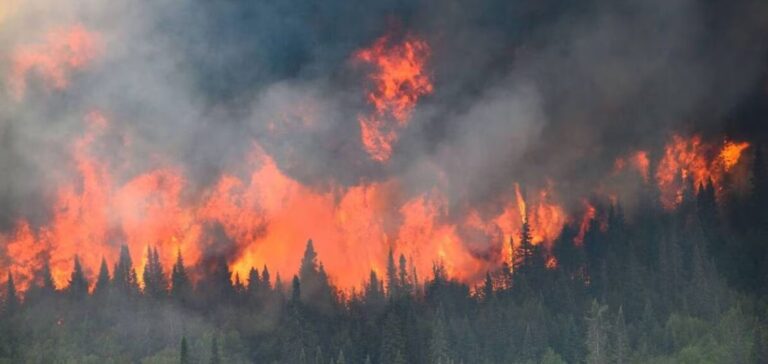Forest fires once again ravage Fort McMurray, a town in the Canadian province of Alberta. This region, essential to Canada’s oil production, is under direct threat from the flames, prompting authorities to order the evacuation of several neighborhoods. Fort McMurray is no stranger to this kind of catastrophe. In 2016, the city had already been the scene of one of the largest evacuations due to fires. These events caused considerable damage. Today, as the country emerges from a particularly mild and dry winter, greatly increasing the risk of fires, local residents and industries are once again on high alert.
Economic impact on the oil industry
Fort McMurray is at the heart of the oil sands, a crucial resource that places Canada among the world leaders in oil production. Every day, the region contributes to the extraction of over three million barrels, significantly influencing the global oil market. The disruption caused by the current wildfires is likely to have an impact on international oil prices. This will affect not only the local economy, but also that of many countries dependent on these exports. The recurrence of such events raises urgent questions about the sustainability of extraction methods and the need toadopt more resilient strategies in the face of climate change.
Restraint reactions and strategies
The local authorities, despite having learned from previous tragedies, were faced with a fire of remarkable intensity. Josée St-Onge, spokesperson for Alberta firefighters, reports a rapid progression of flames, exacerbated by strong winds. Reduced visibility and the intensity of the fire forced the withdrawal of front-line crews, highlighting the extraordinary challenges faced by firefighters. At the same time, Jody Butz, the region’s fire chief, insists that the resources currently in place are sufficient to manage the situation, in an attempt to reassure the population.
Human impact and community reactions
Fort McMurray residents, especially those who lived through the 2016 evacuation, are facing renewed anguish. Stories like Ashley Russell’s illustrate the psychological distress these repeated events can cause. Indeed, the fear of history repeating itself, despite the authorities’ assurances of better preparation and responsiveness, exacerbates these emotions.
Long-term and financial considerations
Fires near Fort McMurray highlight immediate crisis management challenges. They also reveal the long-term implications for the industry. What’s more, the events are also affecting environmental policy in Canada.
These recurring events test the resilience of communities. Infrastructures are put to the test. On the other hand, these crises prompt us to reflect on future strategies.





















